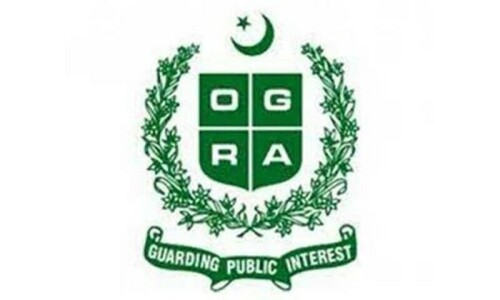ON Tuesday, the Oil & Gas Regulatory Authority slashed the average prescribed gas prices of SNGPL by 10pc and SSGC by 4pc in view of the revenue requirements of the two public utilities for the next financial year. On average, SNGPL consumers should pay Rs179.17 per mmBtu less during the next fiscal year, while SSGC customers should get relief of Rs59.23 per mmBtu.
However, that will not happen where SNGPL customers are concerned, because the government intends to recover from them the tariff differential of Rs581bn not passed on to them during the last six years. A report in this paper estimates that the Ogra determination of SNGPL’s financial losses on account of average price increases from FY19 to FY24, which were not passed on to consumers in full by the government for fear of a political backlash, provides the authorities room for a hike of up to 87pc in the company’s gas prices next year. Chances are the government might not recover the entire amount from inflation-stricken gas consumers in one year and may spread it over a few years. The authorities have already shared their plans to raise both gas and electricity prices from the new fiscal year.
Energy inflation has been a major cause of the surging cost of living over the last couple of years. Even though headline inflation came down to just above 17pc last month from its peak of over 38pc last May, the planned hike in energy rates could again push up prices during FY25.
With the government trying to secure yet another loan from the IMF to preserve the country’s new-found economic ‘stability’ and improve its credit rating, the authorities have also shared with the Fund their plans to raise gas prices from August and the base electricity tariff from July. In addition, the government would be required to increase taxes to boost its revenues by 1.5pc of GDP. These measures will again drive up inflation, burdening the people with even more costs. The household budgets of the majority, especially those in the low- to moderate-income bracket, are already stretched thin; further erosion in their purchasing power and reductions in real wages will thrust them far beyond breaking point.
The upcoming budget and the financial measures accompanying it will determine who will bear the ever-increasing burden of IMF-mandated adjustments: the elite classes, or the hapless majority. The widening gap between the haves and have-nots is already tearing apart Pakistan’s social fabric.
Unless the government can plug this gap, matters will spiral out of control, and it will be difficult for politicians and policymakers to deal with the ensuing chaos. Protests against economic policies and high prices are growing and are not likely to subside without financial relief.
Published in Dawn, May 23rd, 2024














































Dear visitor, the comments section is undergoing an overhaul and will return soon.